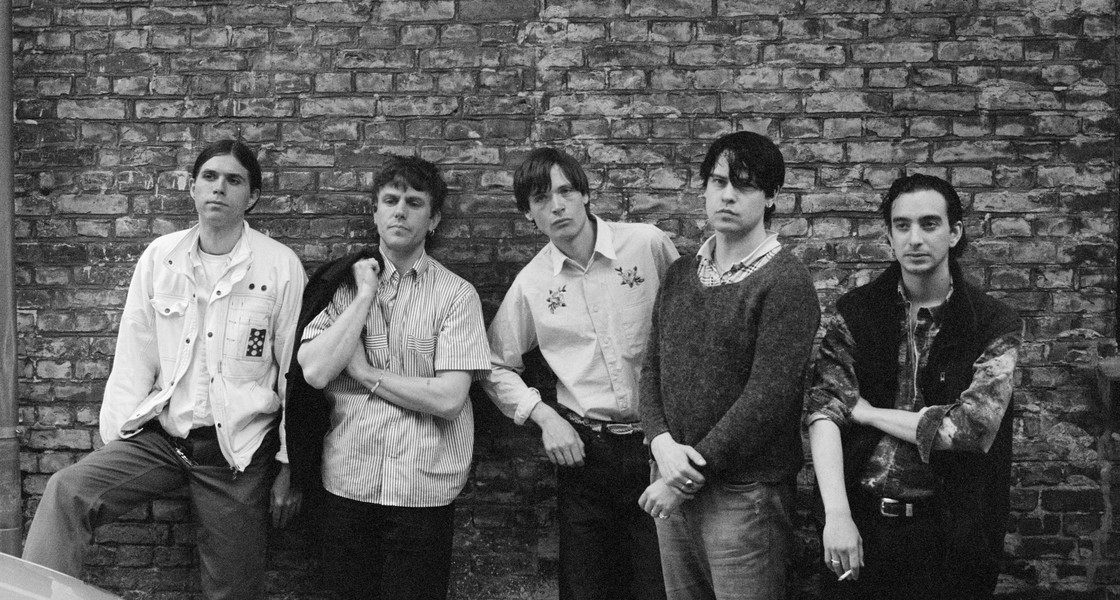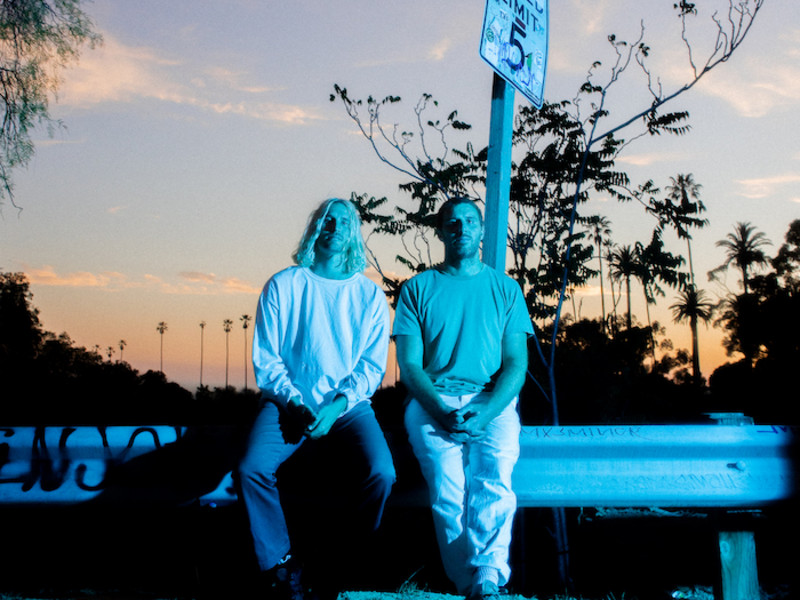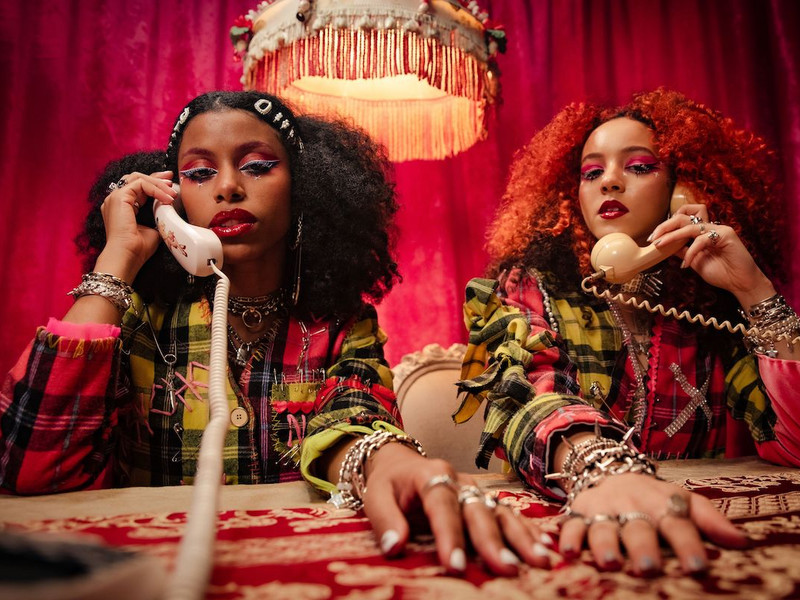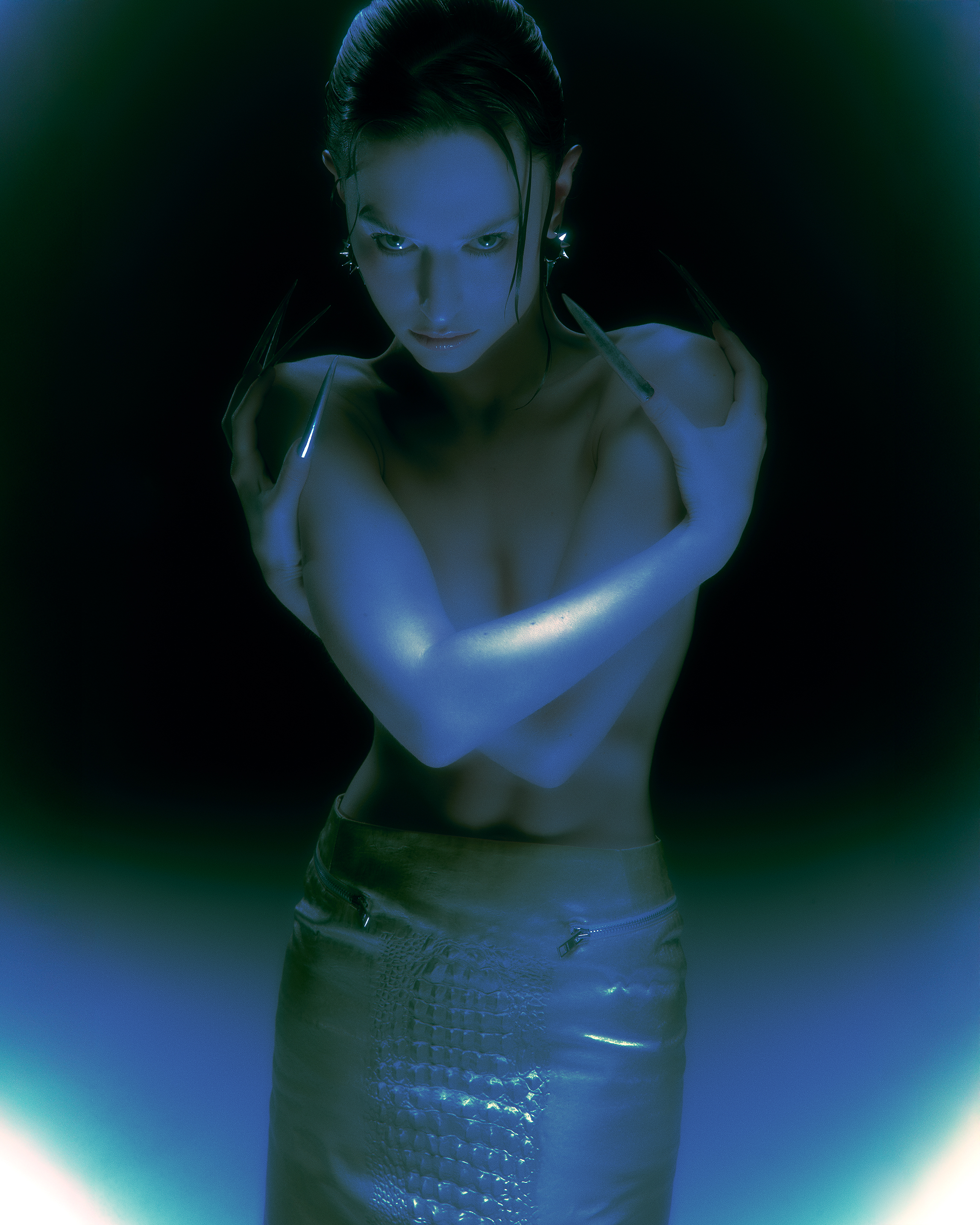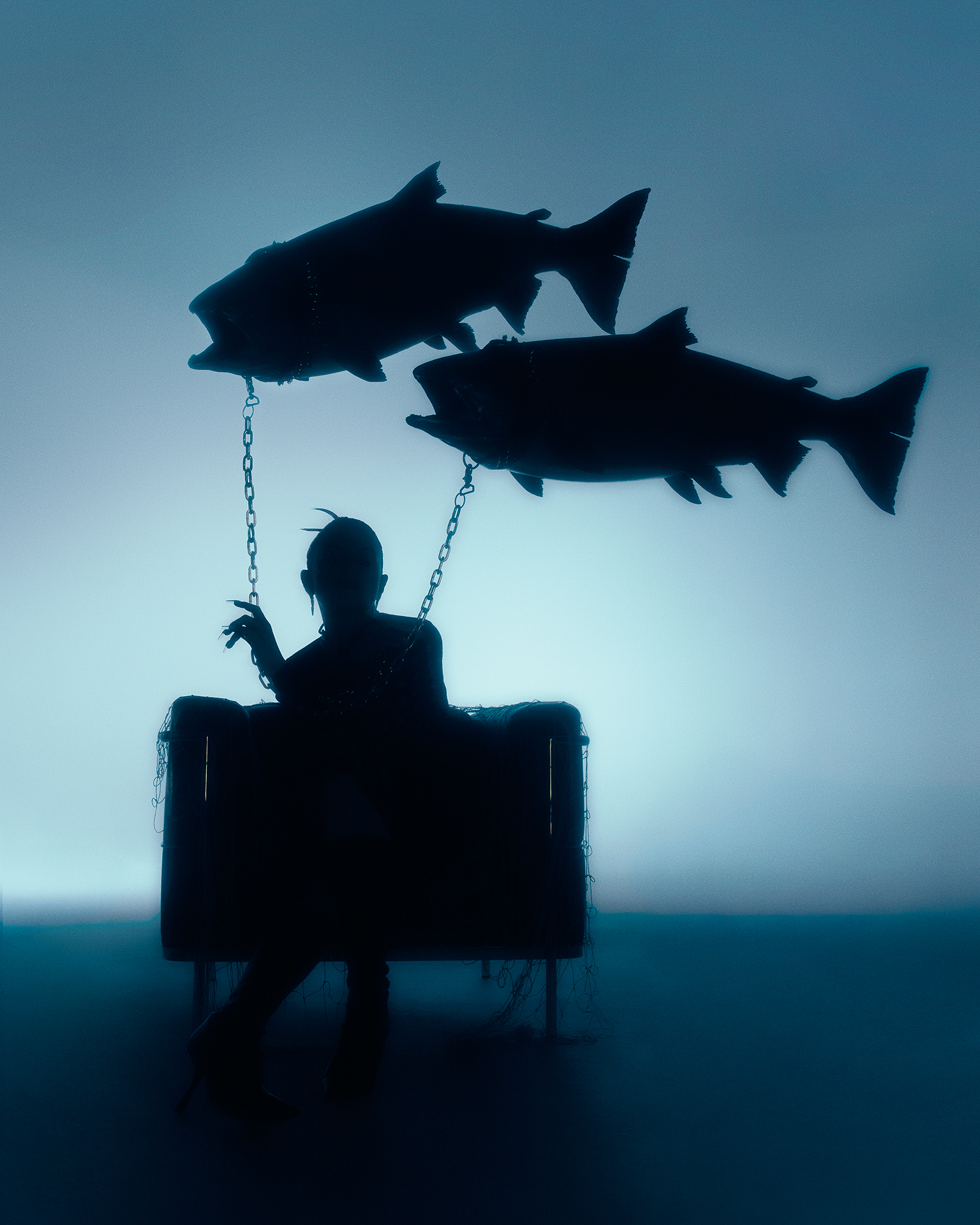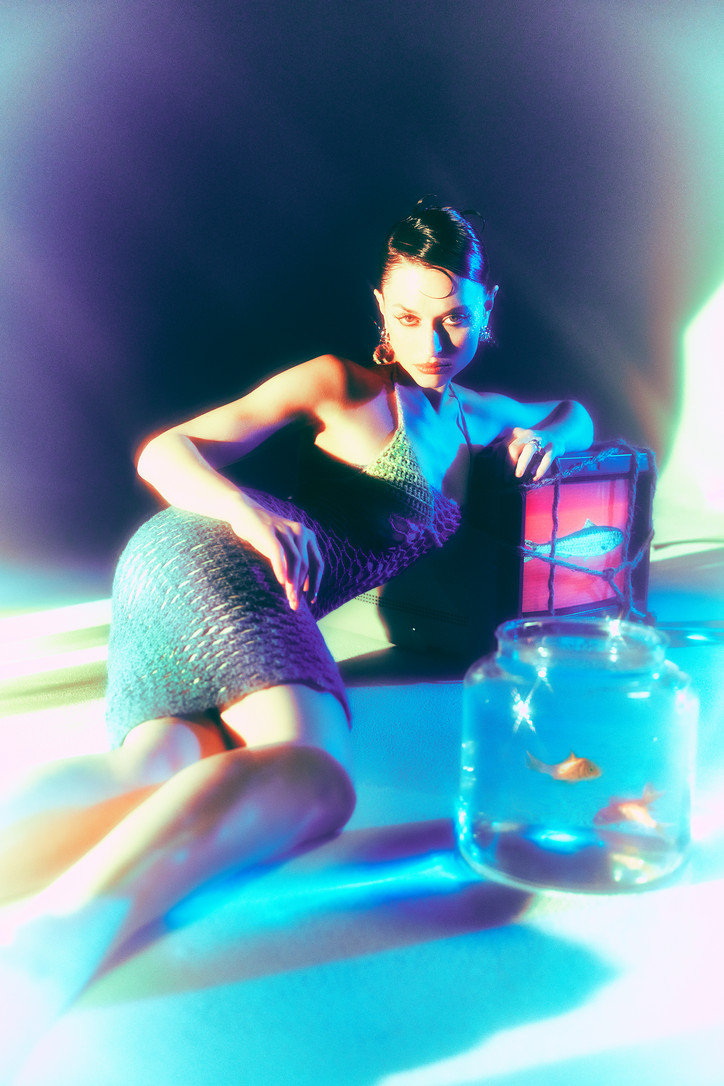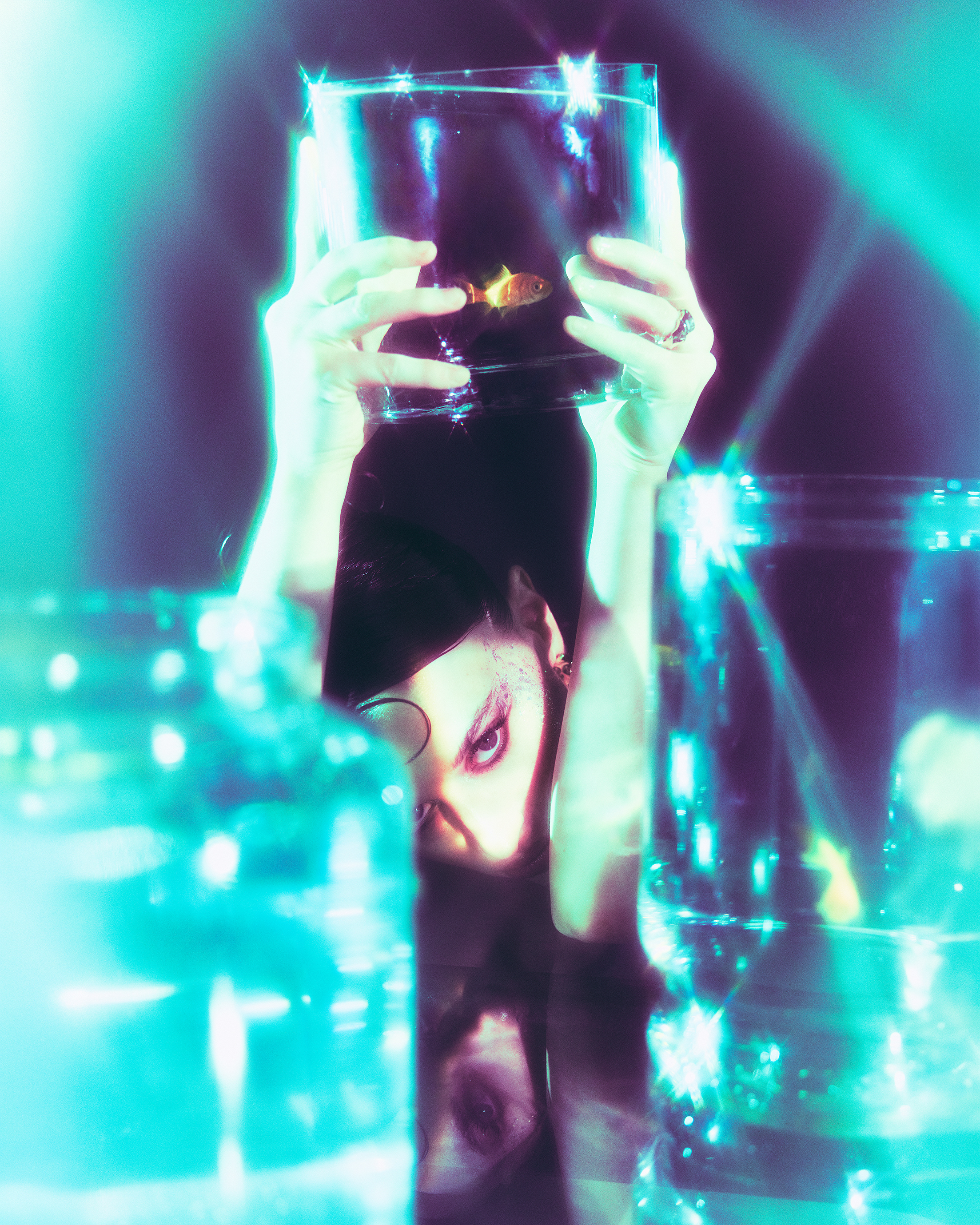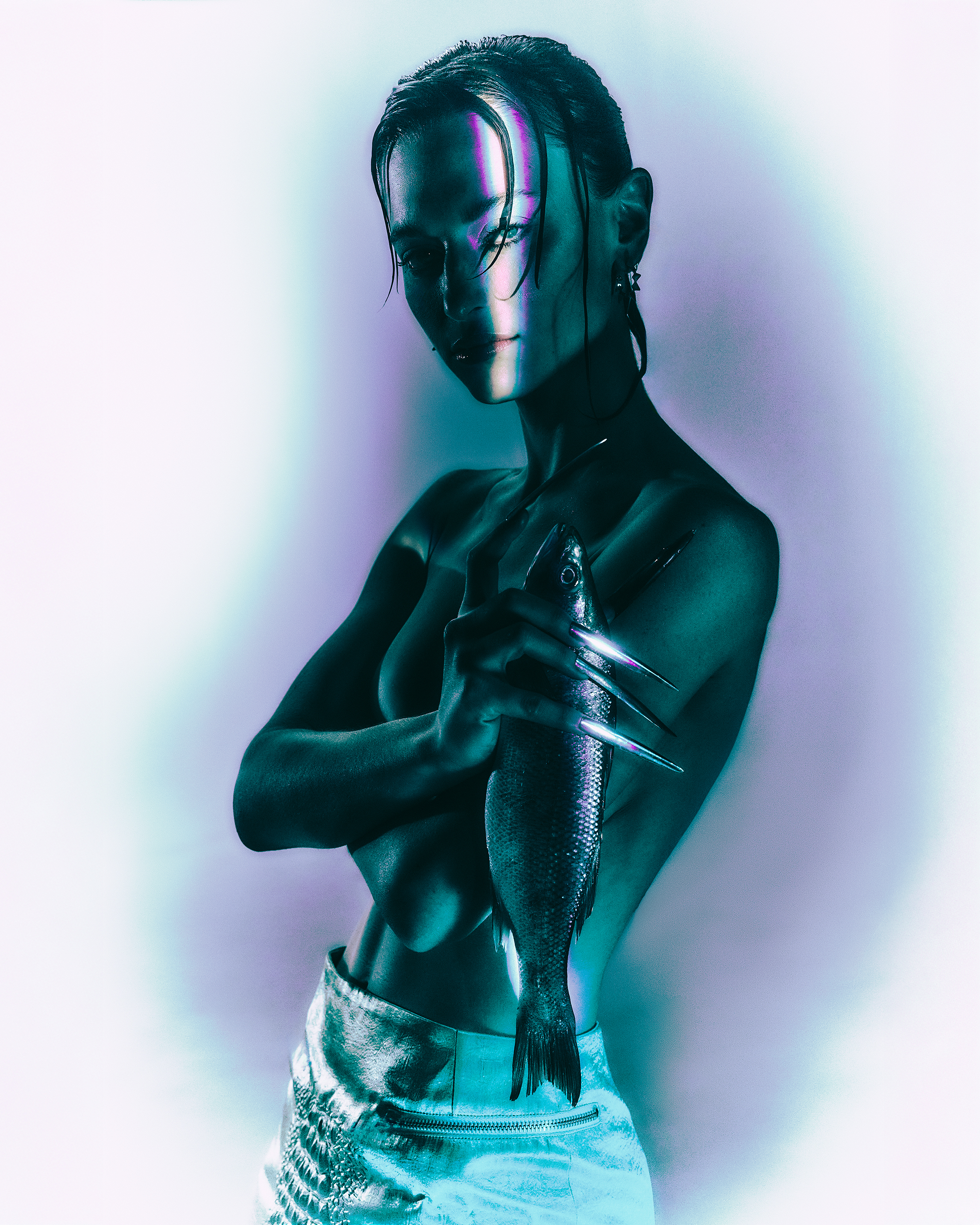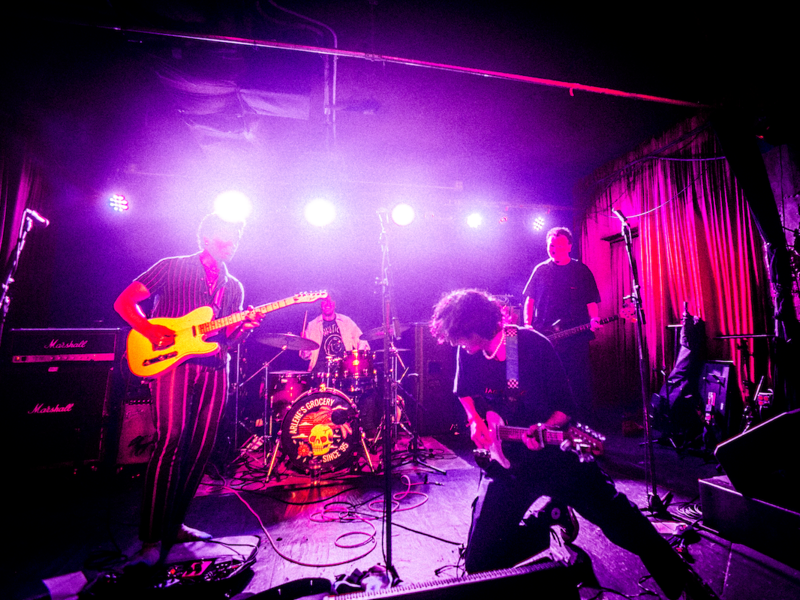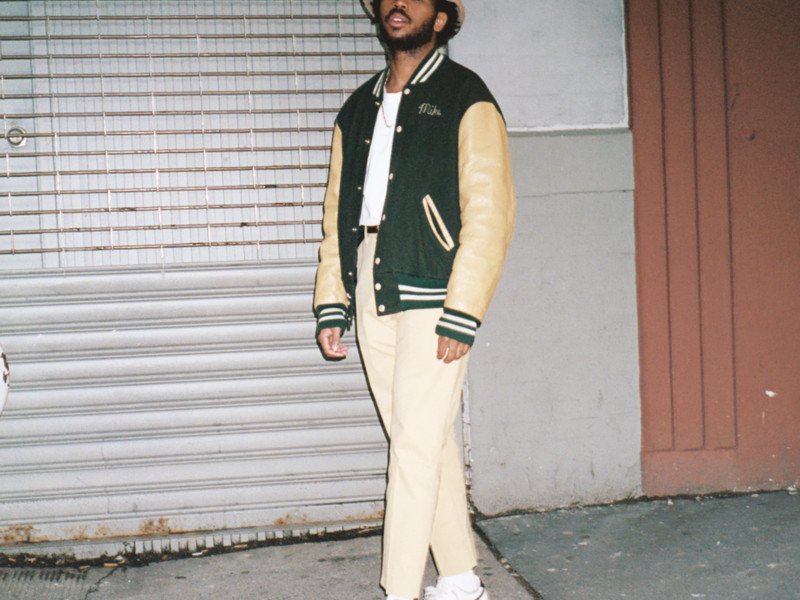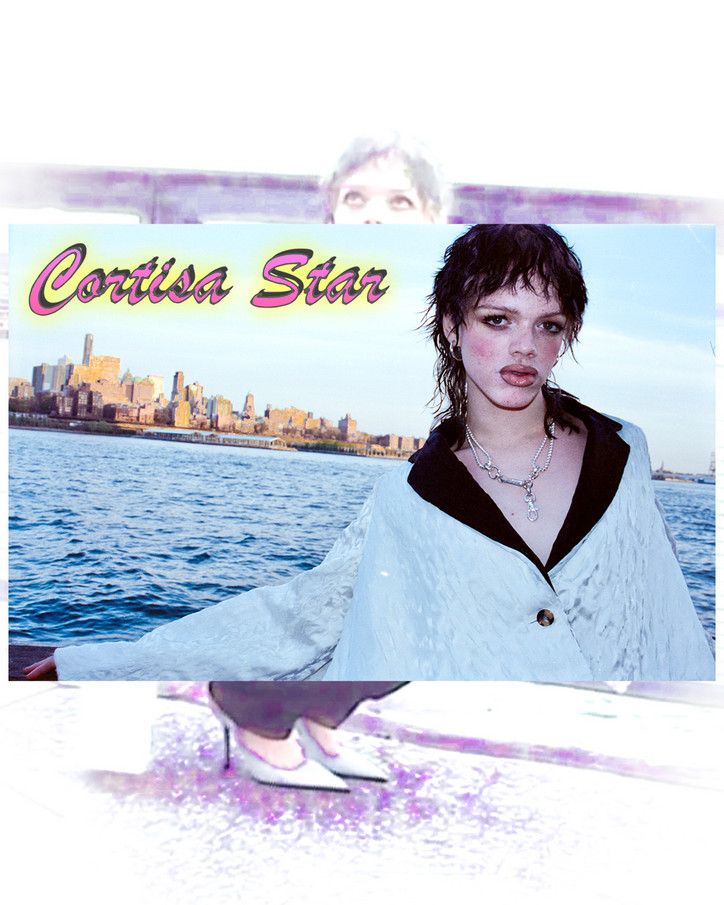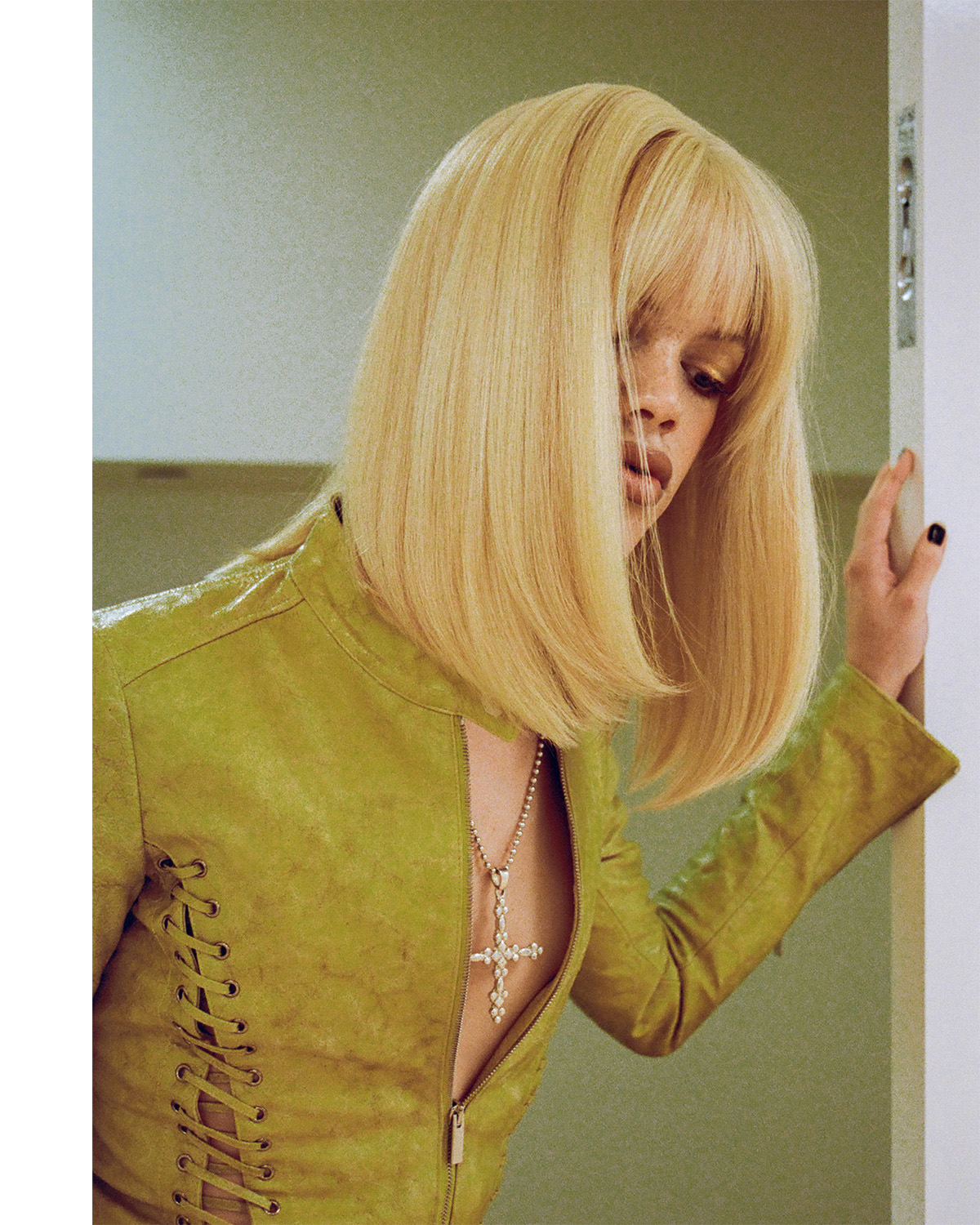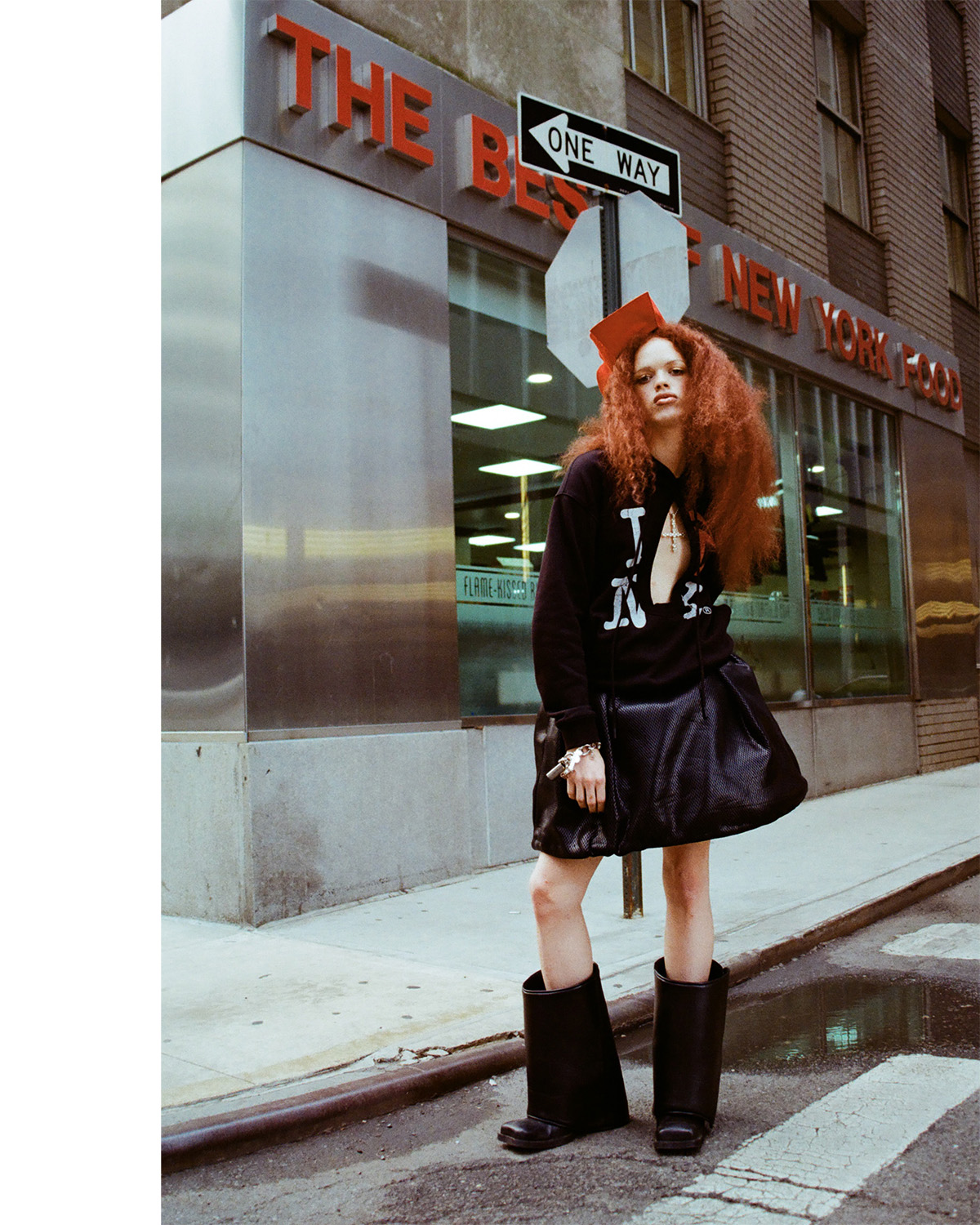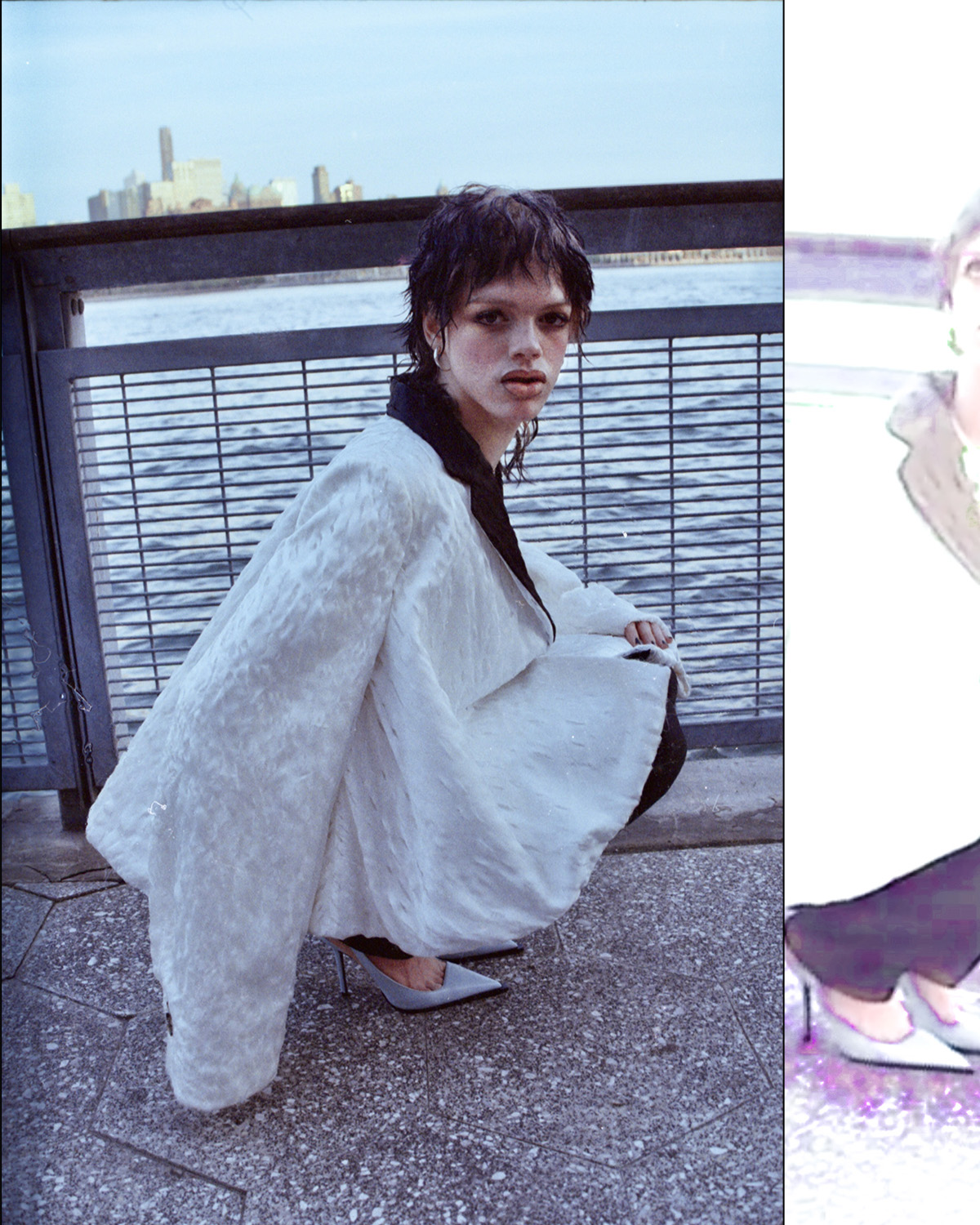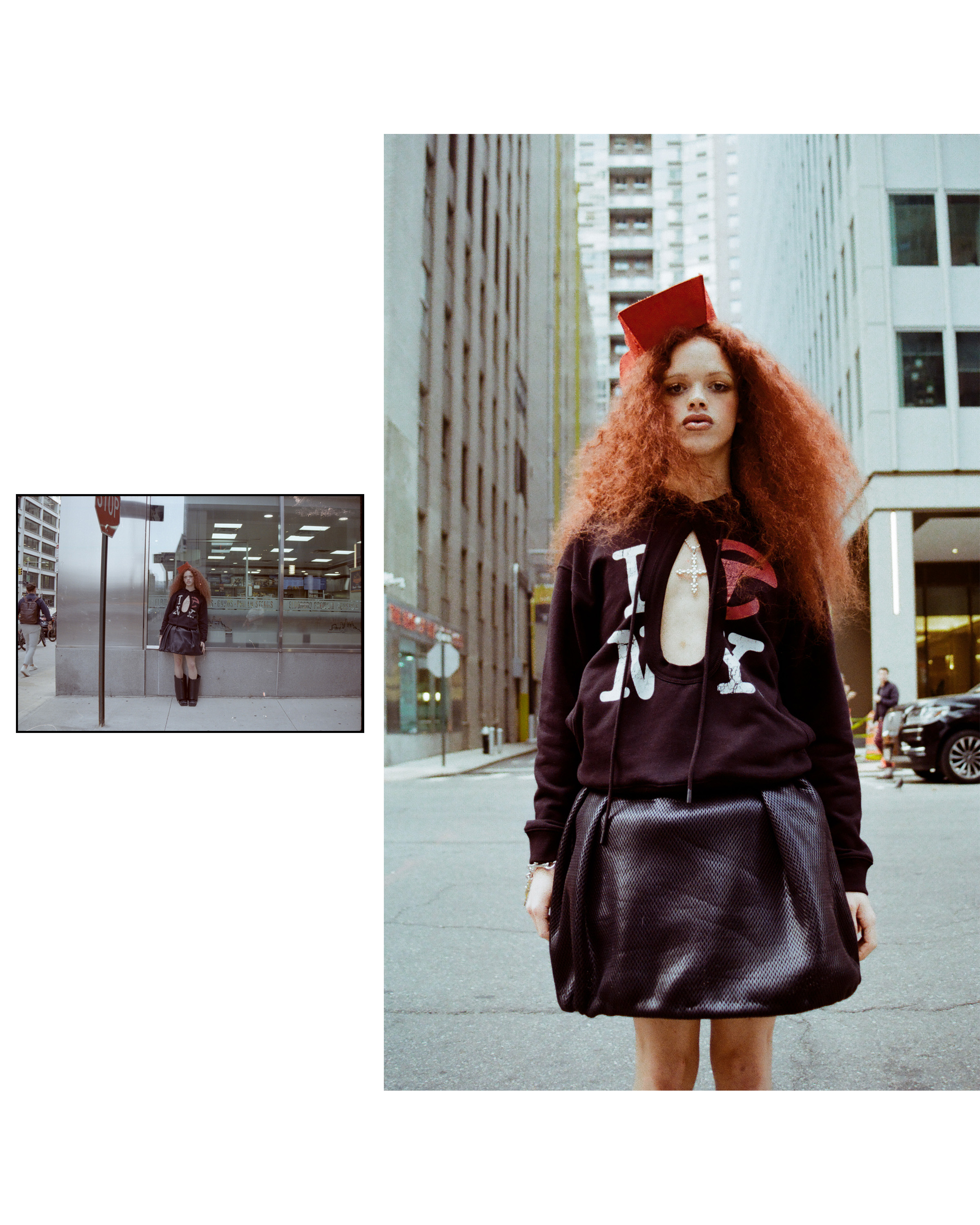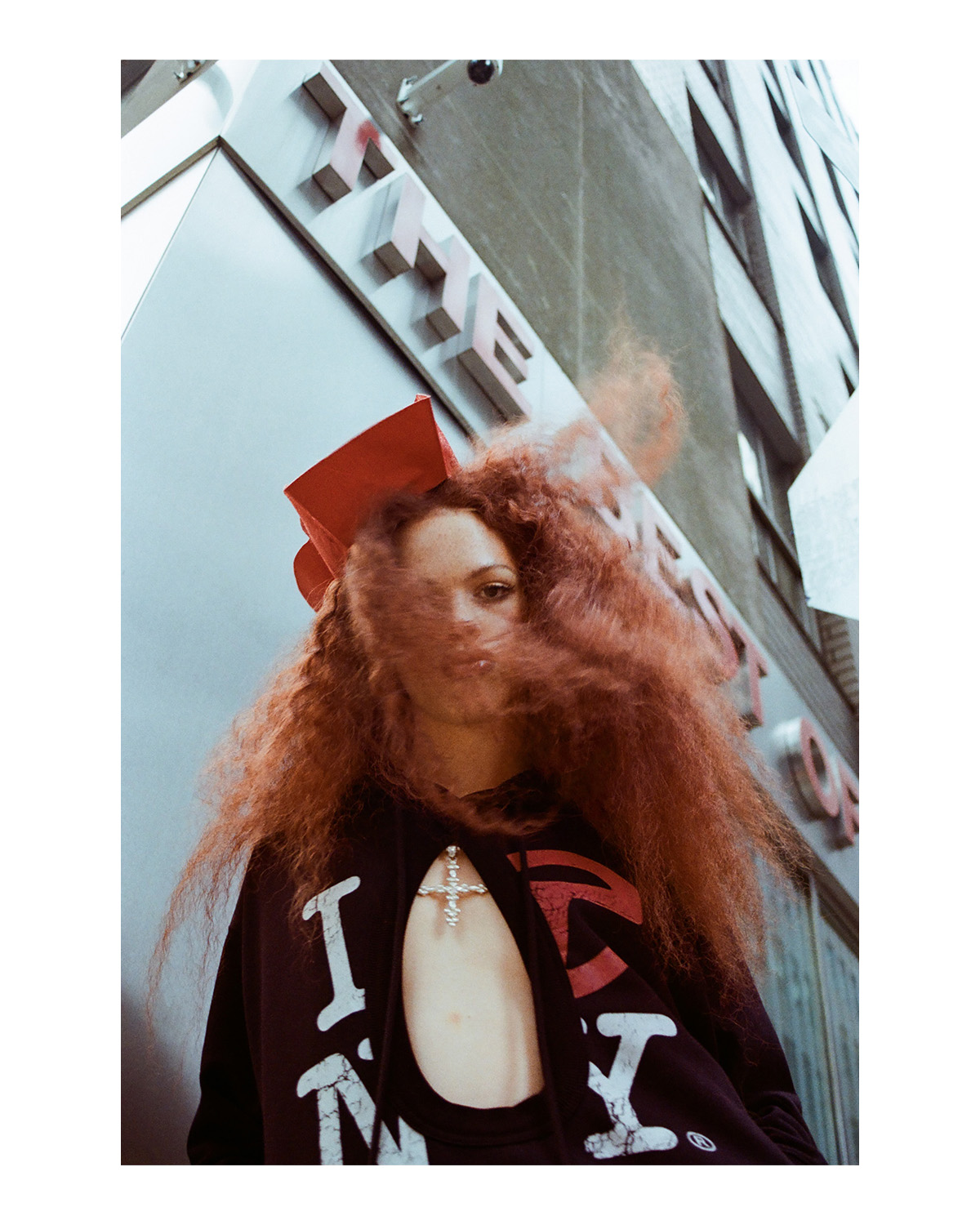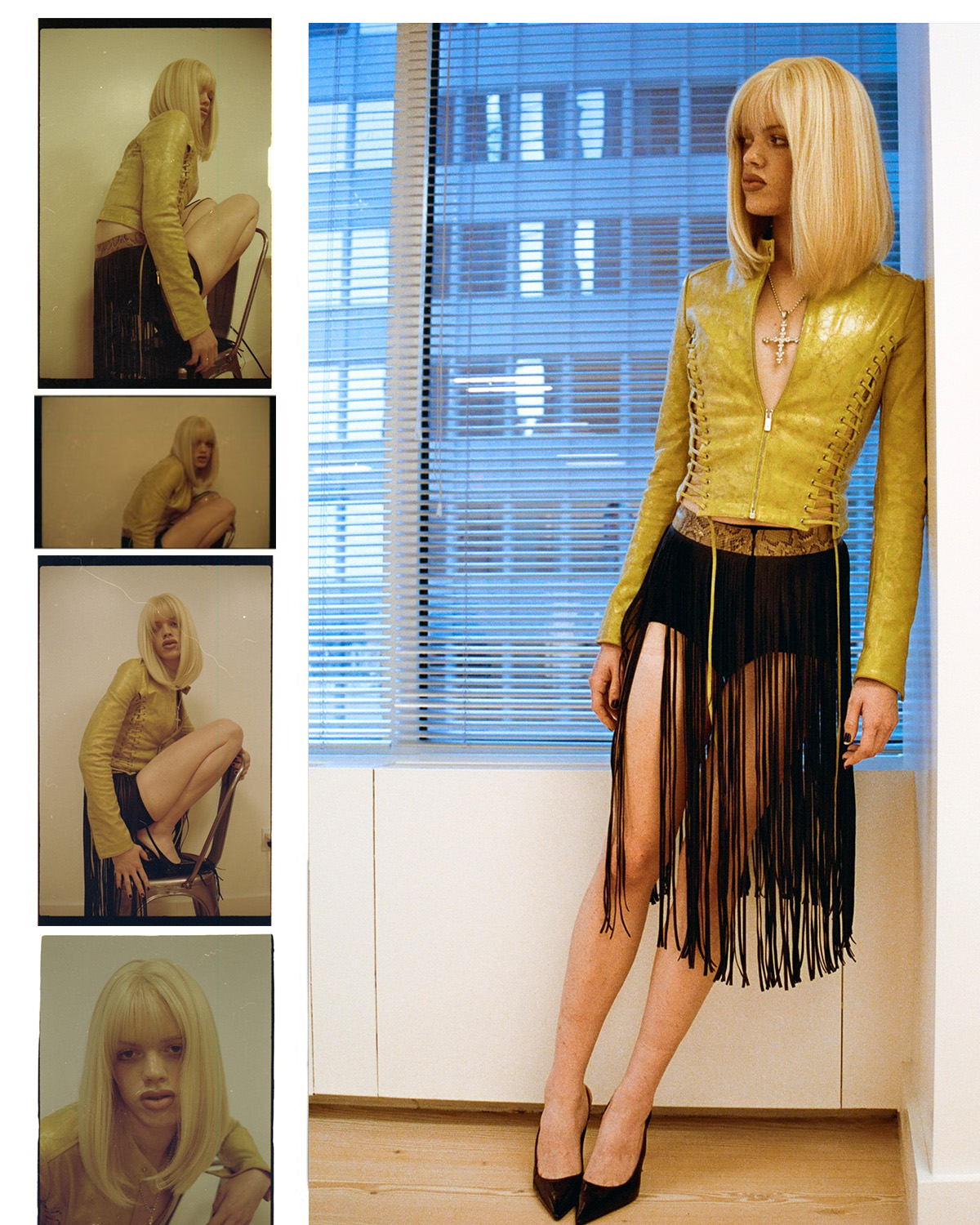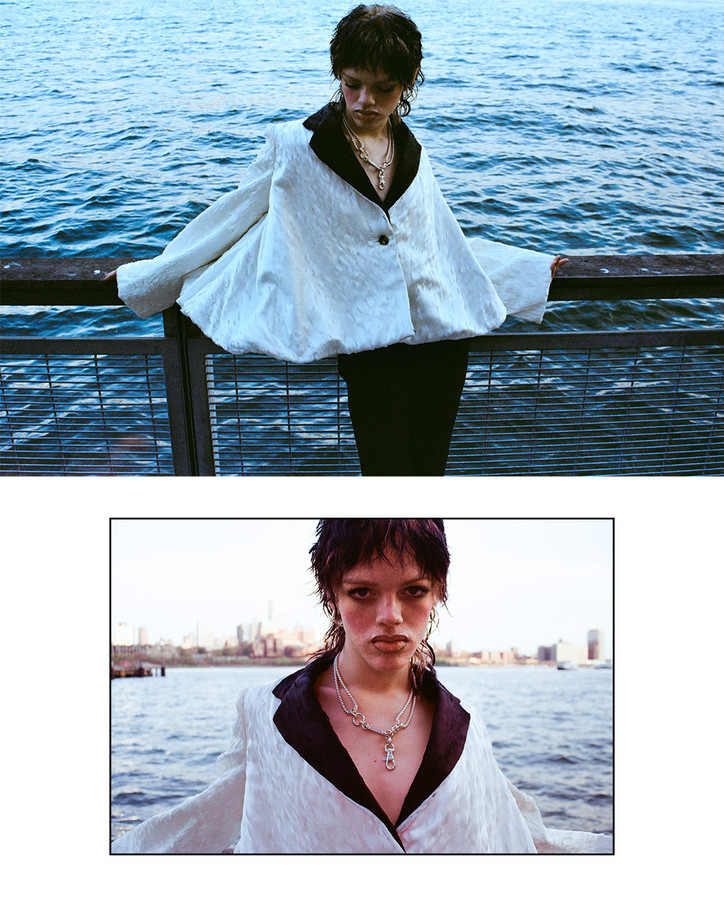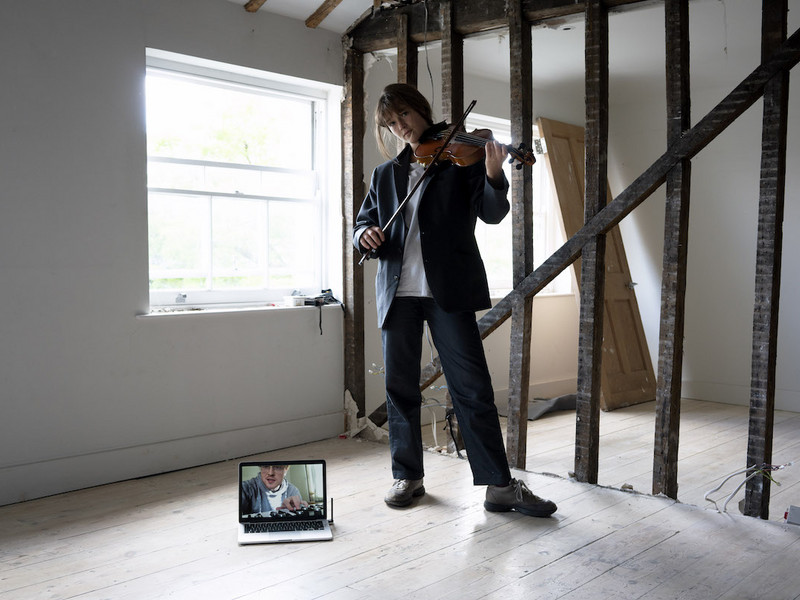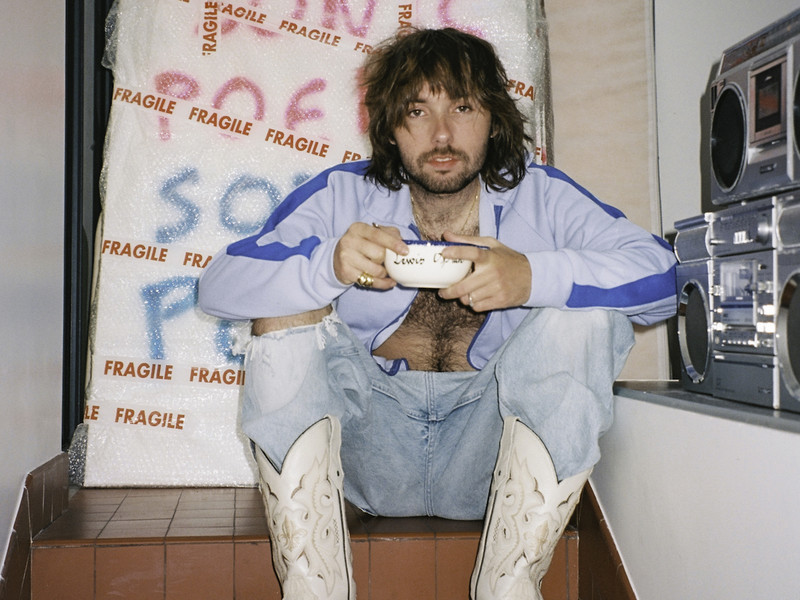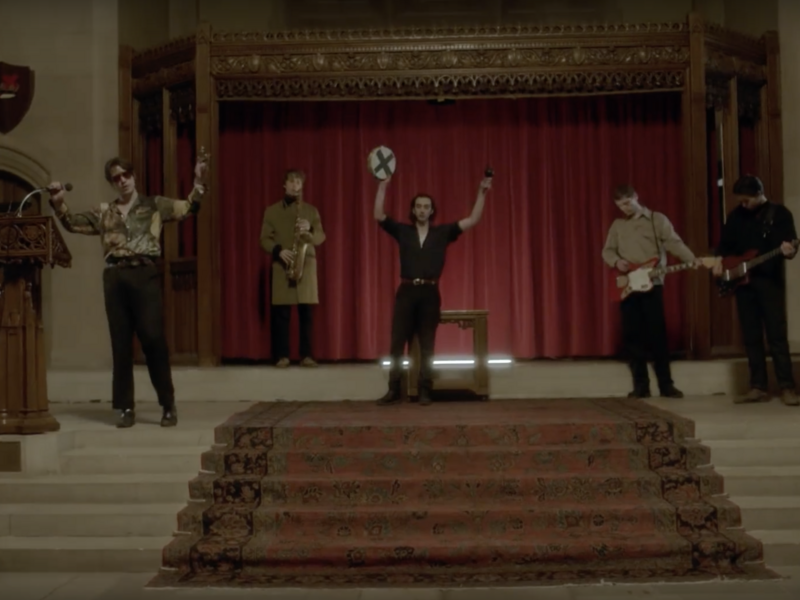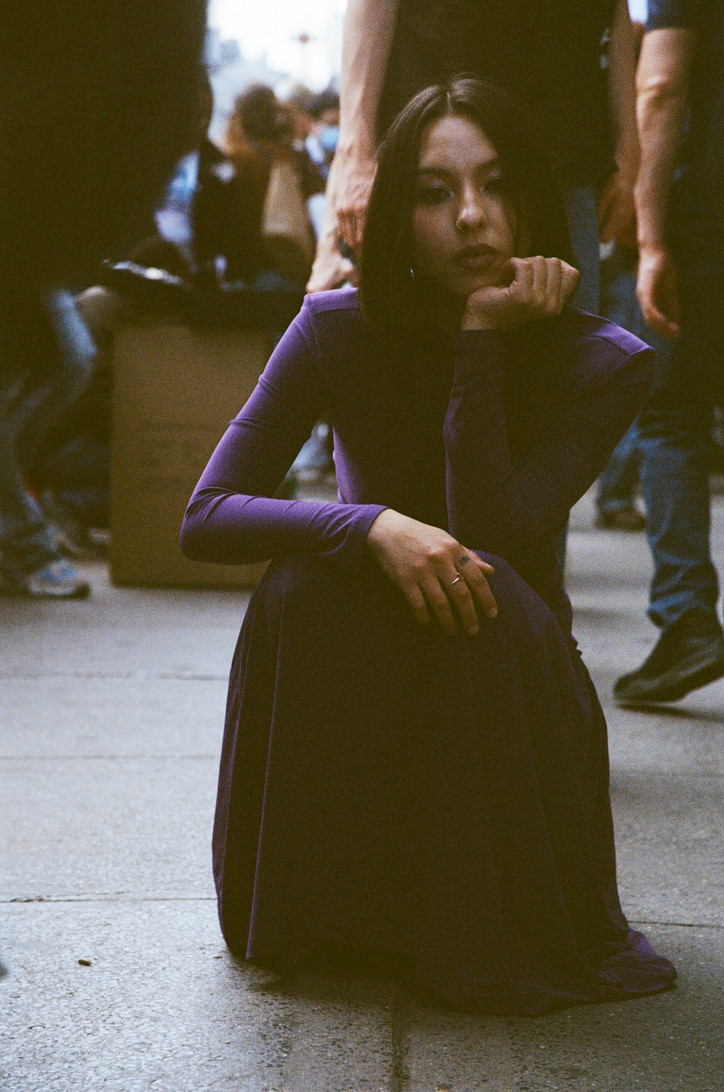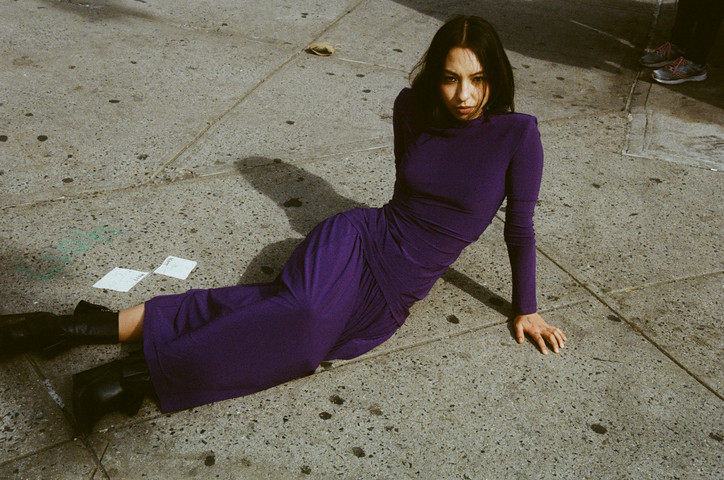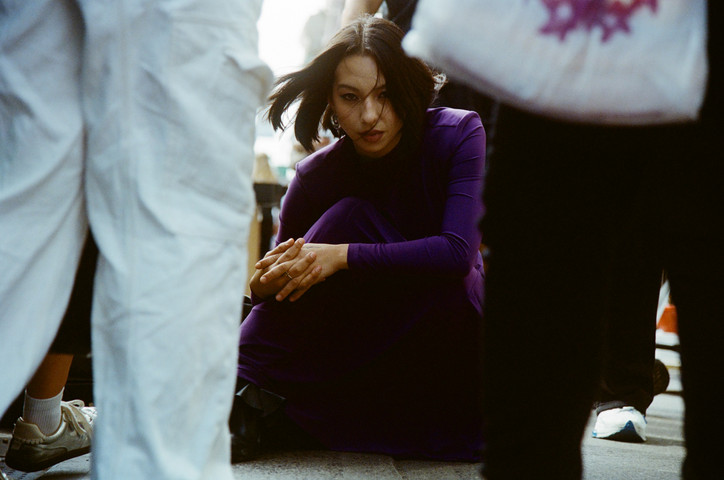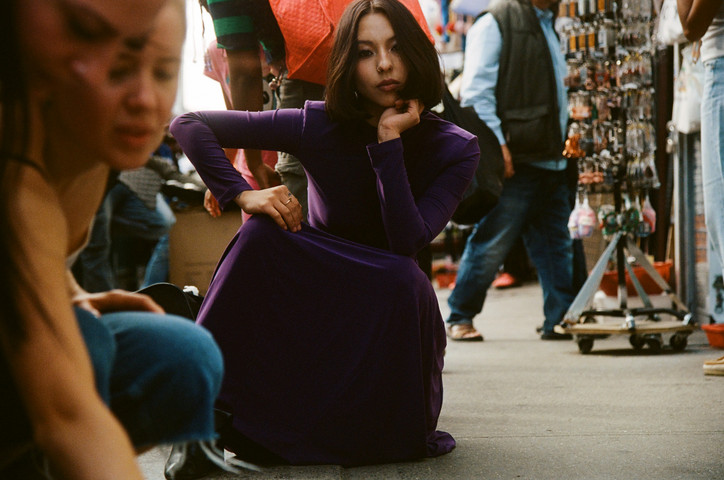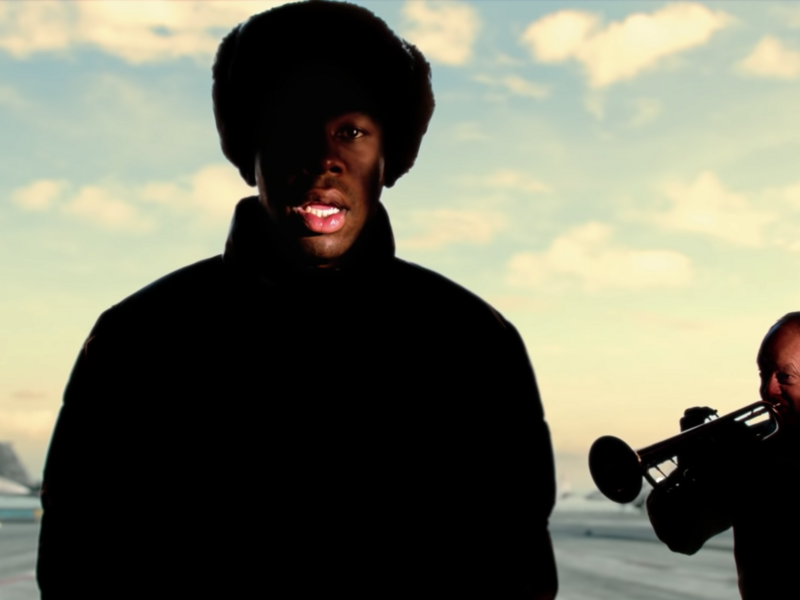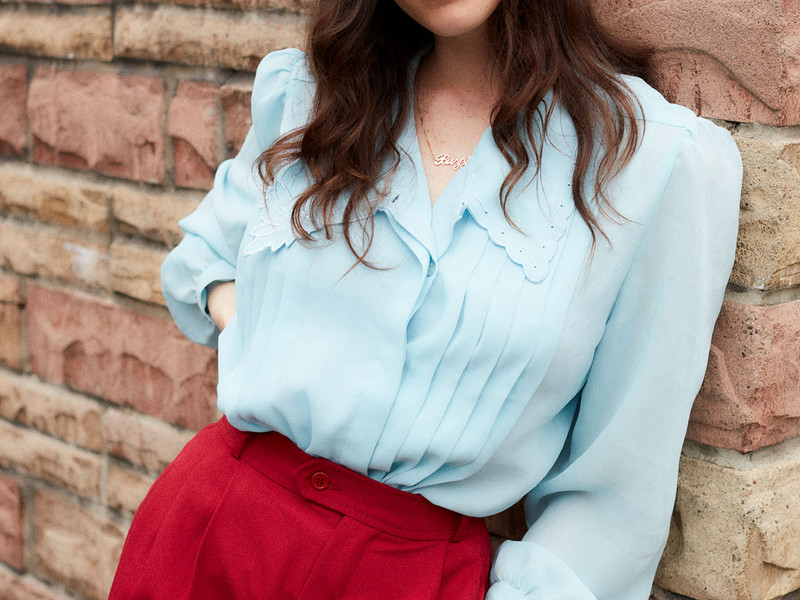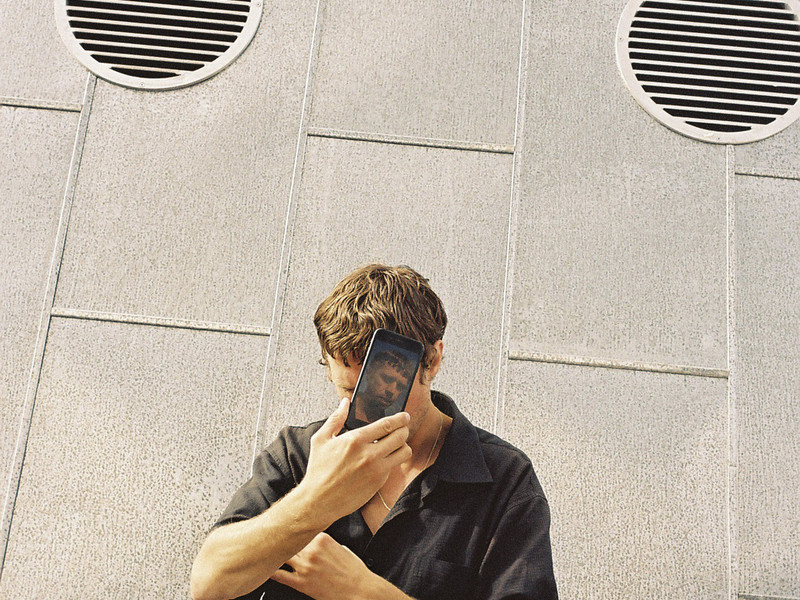Iceage Seeks Shelter
Check out the interview below and watch the video for "Vendetta."
Congratulations on the record release. Were you able to enjoy the fruits of your labor this past weekend?
Yeah, on Thursday we were playing two shows in a row, which was the first day that they allowed restricted shows to happen again. The first show was — I think it was fine, but just having been away from concerts for a while, it took a minute to sort of step back into it. I was kind of like “Oh, is this what concerts are like? Is this what I had been missing this entire time? Because this is not as good as I remembered it.” But that kind of made it so that we had everything to lose with the second concert. Because playing with that feeling two times in a day would just be mind-shattering. And then the second one was actually quite glorious and after we played the second show everybody was getting drunk and there came the realization that this was everything we kind of built up to making this album, that was this moment. Everybody was just kind of looking at each other in the eyes, and it felt like a special moment.
The bulk of the album was recorded at the end of 2019. I imagine you've been sitting with it for over a year now. Was that an excruciating process?
Yeah, usually it would be. I’m used to finishing an album and having to wait six months, which historically has kind of killed me. I think I'm going to hate it by the end of it. And I mean, it did take a little bit longer to finish the album because of quarantine, and it wasn’t as easy to meet up and get in studios. But, a pandemic comes and sweeps over the whole earth. And that’s a good of a reason as I can think of to wait a little longer. Plus, I don't know if anybody else has that feeling, but anything that’s called “fear of missing out” is eradicated during quarantine because there was nothing going on anywhere. So yeah, it could be suffocating, but it wasn't like you were in a hurry to get out to something because there was nothing to get out to.
In regards to your busy touring schedule and short returns to home, you've mentioned this “sailor syndrome”; the sailor comes back, and he finds it hard to adjust to staying put with his wife and kids. He wants to get back to the sea, or in your case, back on the road. Were you having that feeling with the album? You’re sitting with it as if it's the wife and kids?
Yeah, man. Once it was finished, you know, I had my little moment with it, trying to understand. 'Okay, this is what we did. This is what we've done.' And then, I deleted it off my computer. I didn't want to have the option to listen to it, or to find faults with it, or anything because it's locked. It's done. To have any chance of enjoying it, once it came out, I just deleted it. I've purposely not really thought too much about it. And, now it’s nice that it’s out.
Do you and the band experience that phenomenon of wanting to go back and change things once they’ve been released?
It's not so much those kinds of thoughts. It’s more like how you see faults in yourself on an existential level or as a human being; the way that you look in a mirror and feel the sight is unwelcome, or look in old diaries and find that kind of cringe-worthy. [The album] is what it should be, and I know that because it was what we intended when we finished it. Staring your own past in the face is not something I like to do too much.
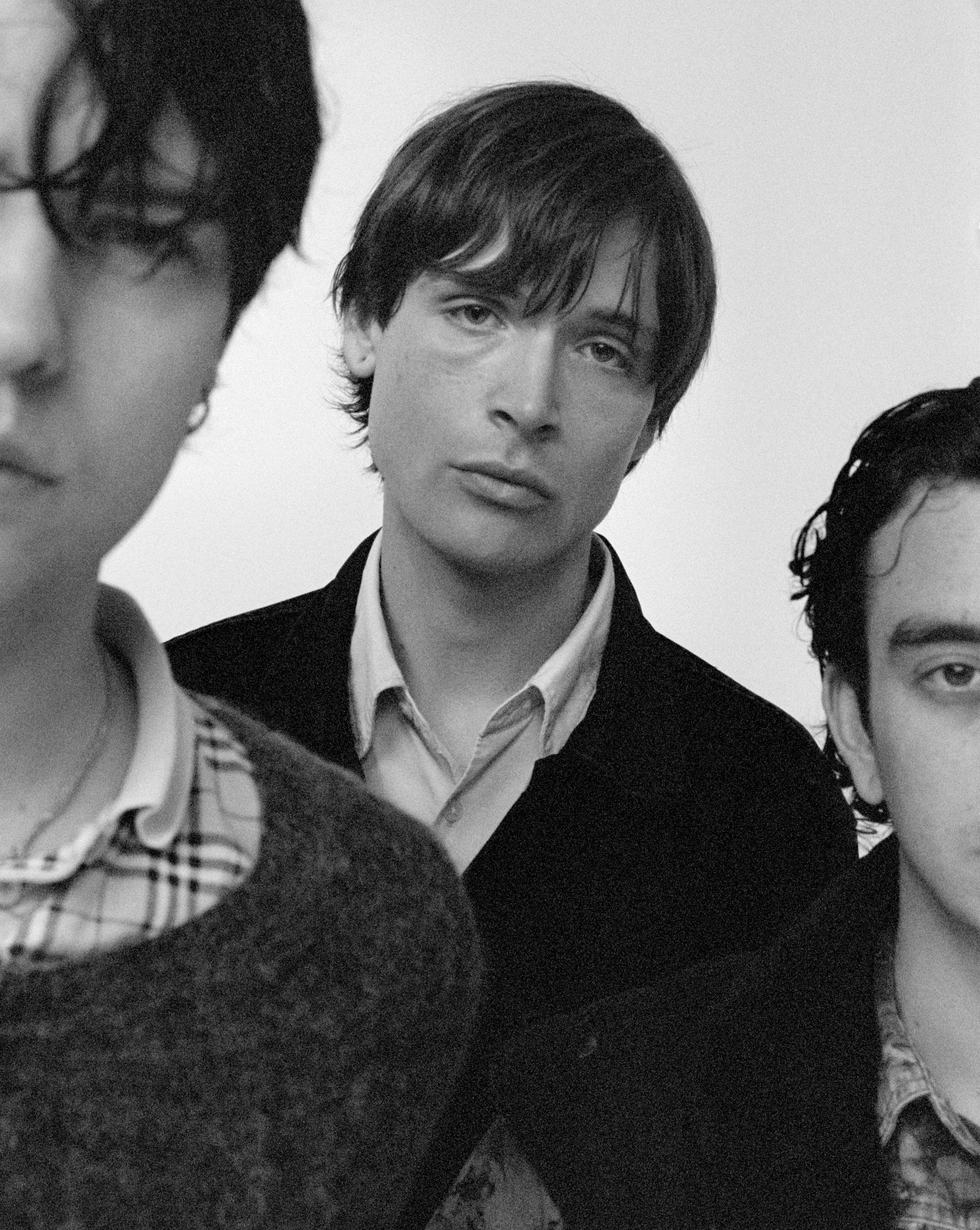
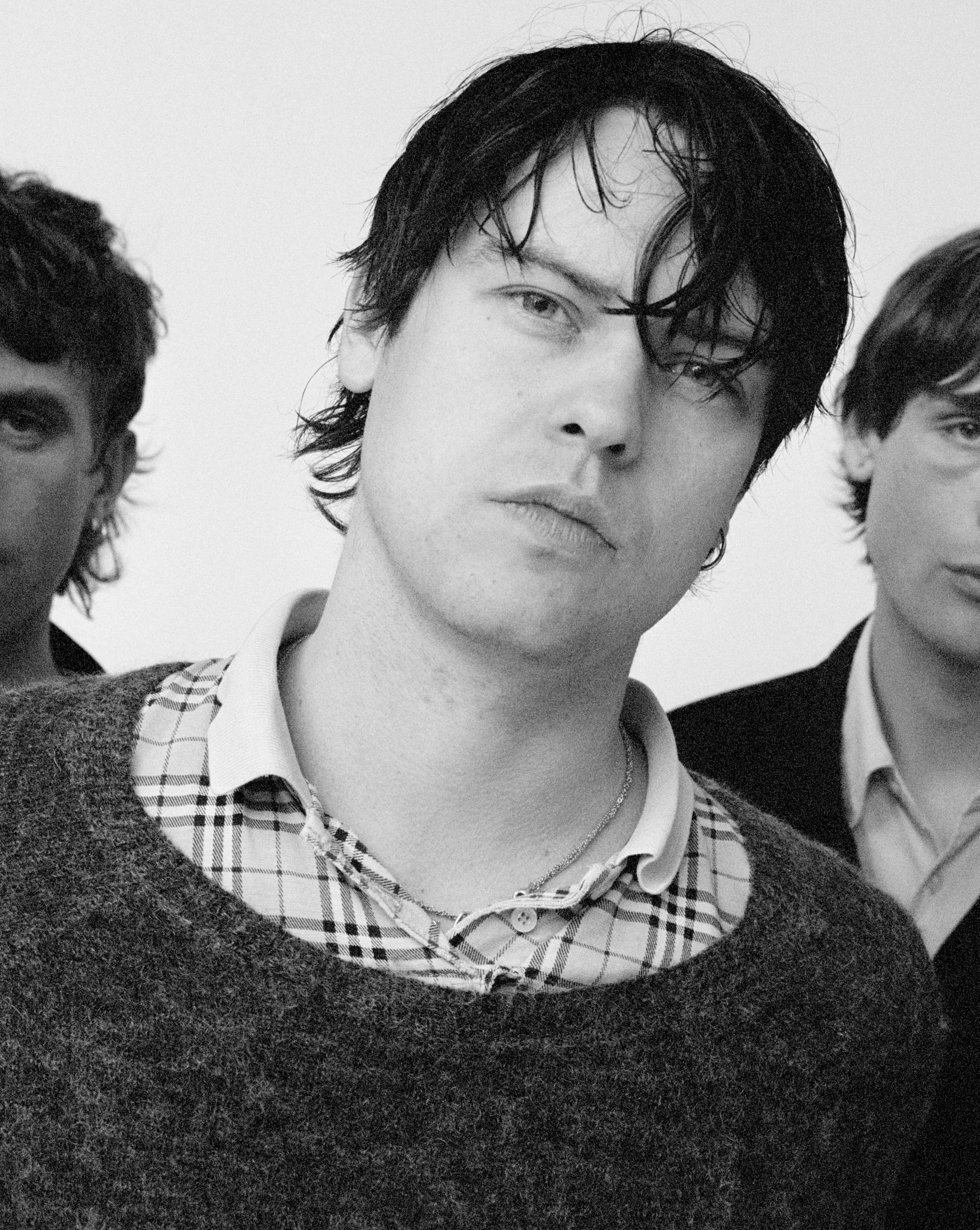
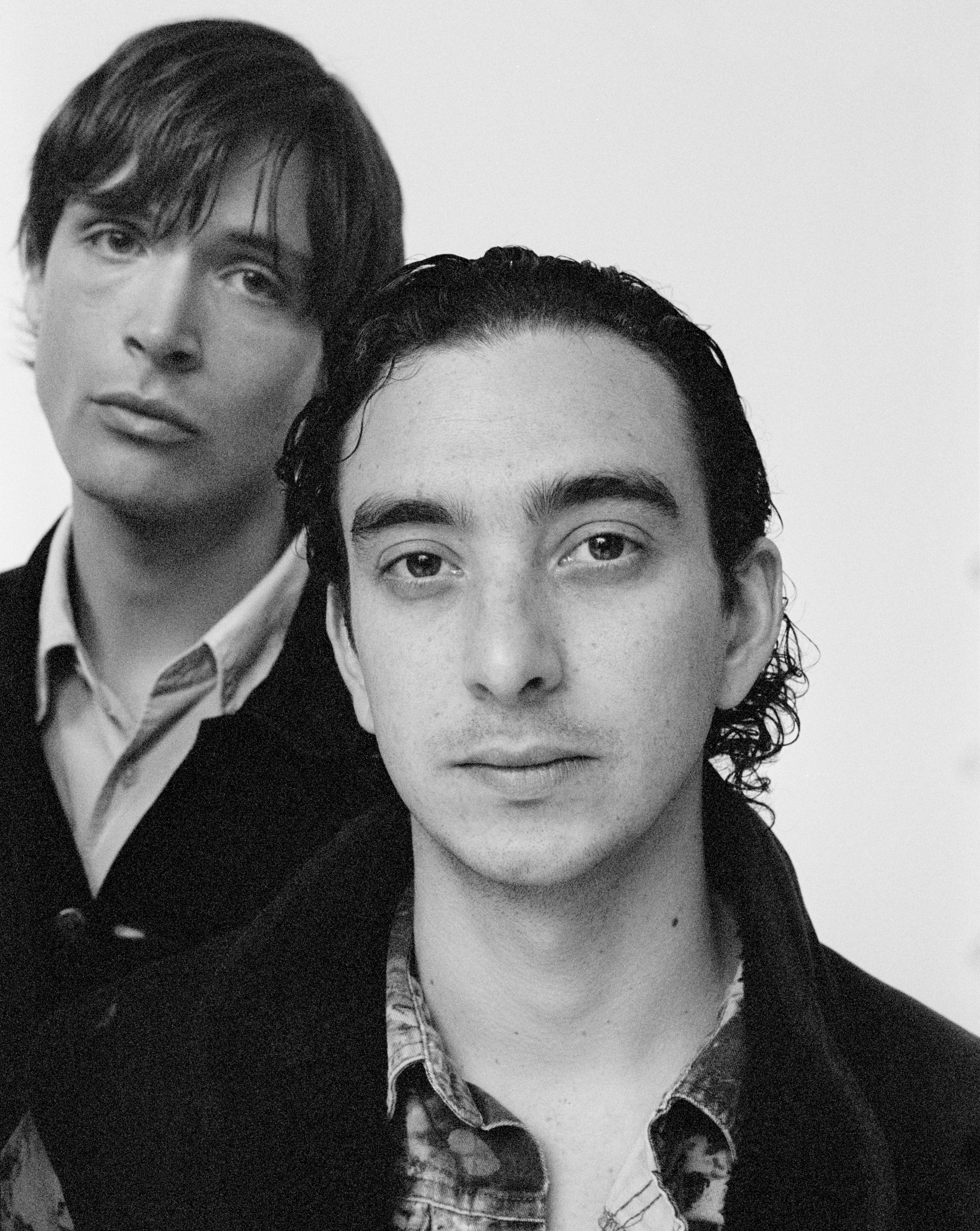
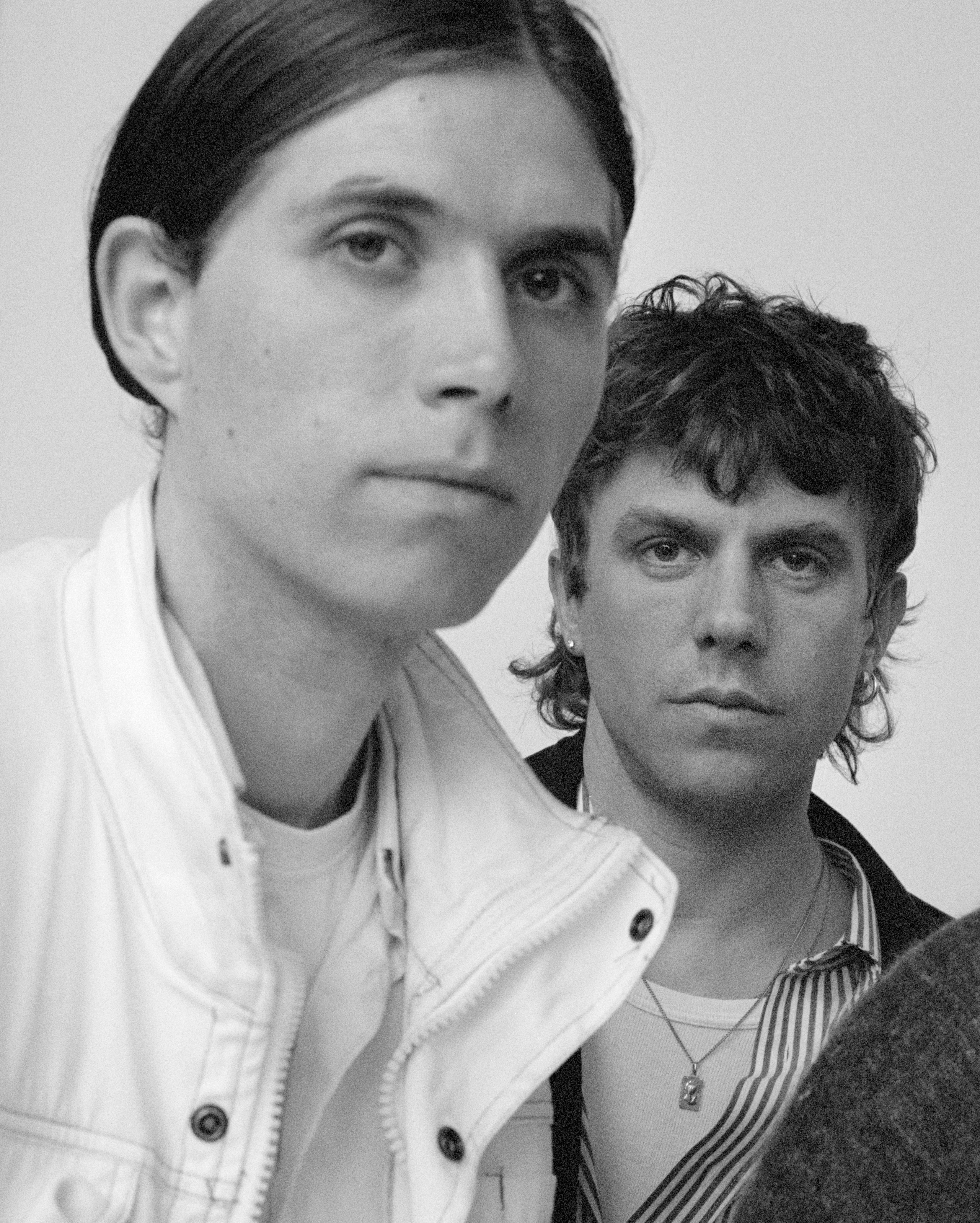
You’re known to write lyrics in one fell swoop. What’s the benefit of that? Does it help circumvent writer’s block? Or is it more about tying an album to a certain emotional time period?
I think it's about capturing a moment and making sure that everything comes from a somewhat collected mindset. Writing sporadically over a year these lyrics can become the subject of eternal continuous editing. And I think you can get to a point where you edit the life out of something. Then, the original core of it is not there anymore. So it’s exactly the same with recording in a studio. You need urgency and an environment where you're not dwelling on decision-making too much. It's more about what you can release rather than how you can scrutinize what's there. And I think that there needs to be some kind of time demon chasing you in order to push yourself out into a place where it just becomes about the release, and whatever blurts out is the end product.
Do you write melody before the words?
Yeah, all the compositions are kind of there. So I know exactly the amount of songs that have to have lyrics. Some writing will have been done with no music in mind and then molded into the composition. Sometimes you know exactly the number of utterances in verses that need to be in there. But there’s not really any rules.
On Instagram, I saw that before you guys will go properly on tour next year that you're looking for writing residencies in Europe. What do you see yourself writing in a situation like that? Are you thinking of songs, or have you considered expanding beyond; doing fiction work or poetry?
I mean, first of all, I'm just trying to travel and play for people because I'm not looking to do any substantial concert playing this summer. It’s hard to book anything when everything's pretty much uncertain. And I'm a musician. What I do is I play for people, so to sit a whole summer again, and just kind of wait to be allowed to practice your craft, essentially, I don't think can do that. So, I'm just gonna kind of bring a guitar on my back and hopefully get lost again, because it looks like you'll actually be able to travel. So hopefully, I’ll chase that uncertainty that's been absent from the world for so long now.
On 'Seek Shelter,' the band continues to open up sonically, incorporating more “beautiful” sounds in the traditional sense, like the gospel choir on “Shelter Song” and “Love Kills Slowly”. Did pairing those sounds with the more aggressive and brash music you’ve come to be known for happen organically? Was there a point where the band is thinking, “We don't know how to get these two things to work in tandem?"
I think it's just something we've just been quite attracted to. We're big fans of people like Scott Walker or Serge Gainsbourg who can combine lush arrangement with something that is quite inherently broken. And I think that just creates a contrast which just rings kind of true to life for us. I think what we do will always be inherently broken. Those are the sounds that you hear in your head, right? Like you have something intangible flowing around your head and you don't quite know. I started writing, therefore, I had an idea of how I felt. So chase these sounds that are in your head and you bring in whatever elements that asks for. And, hopefully, you come out with something that feels like what it was supposed to be.
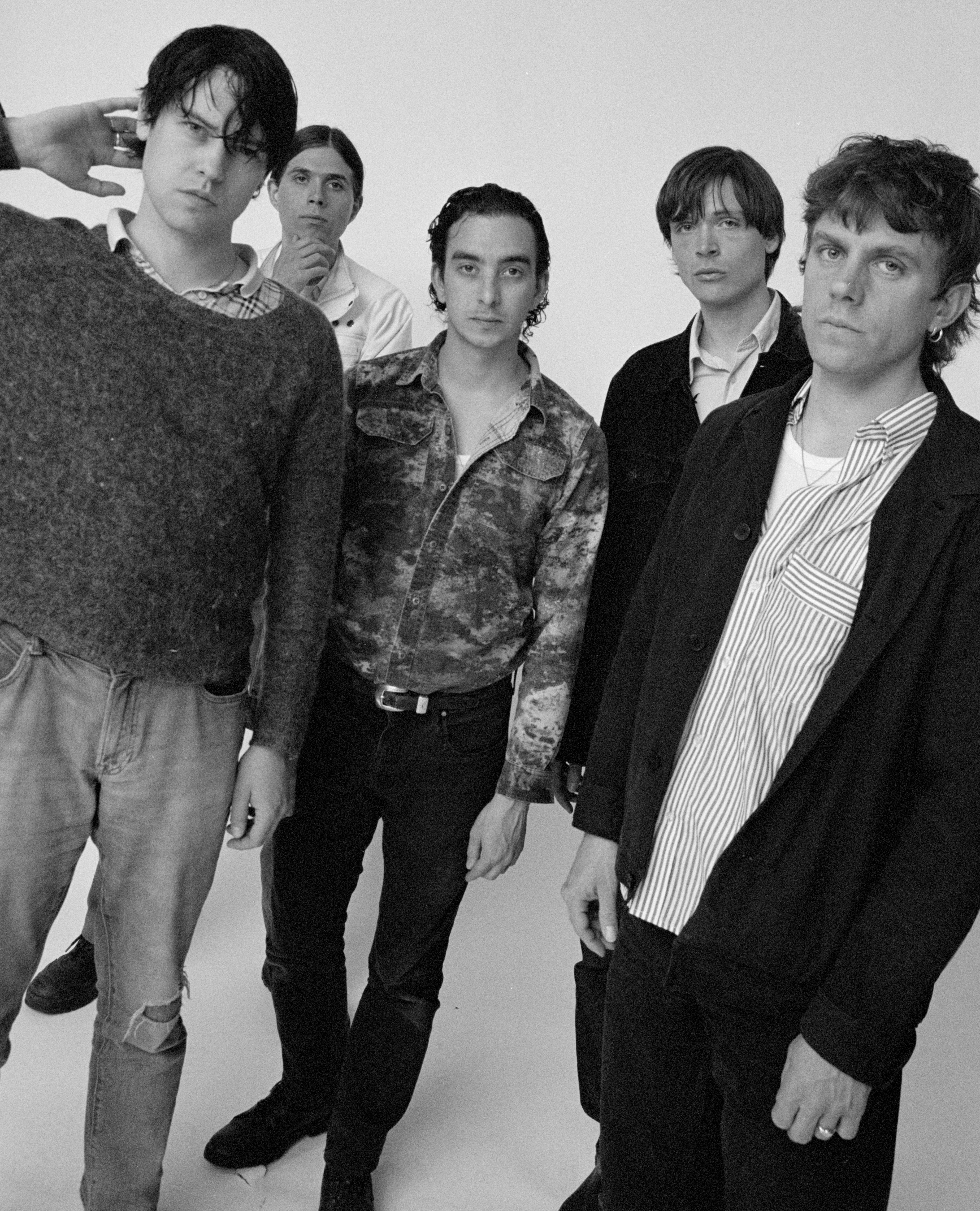
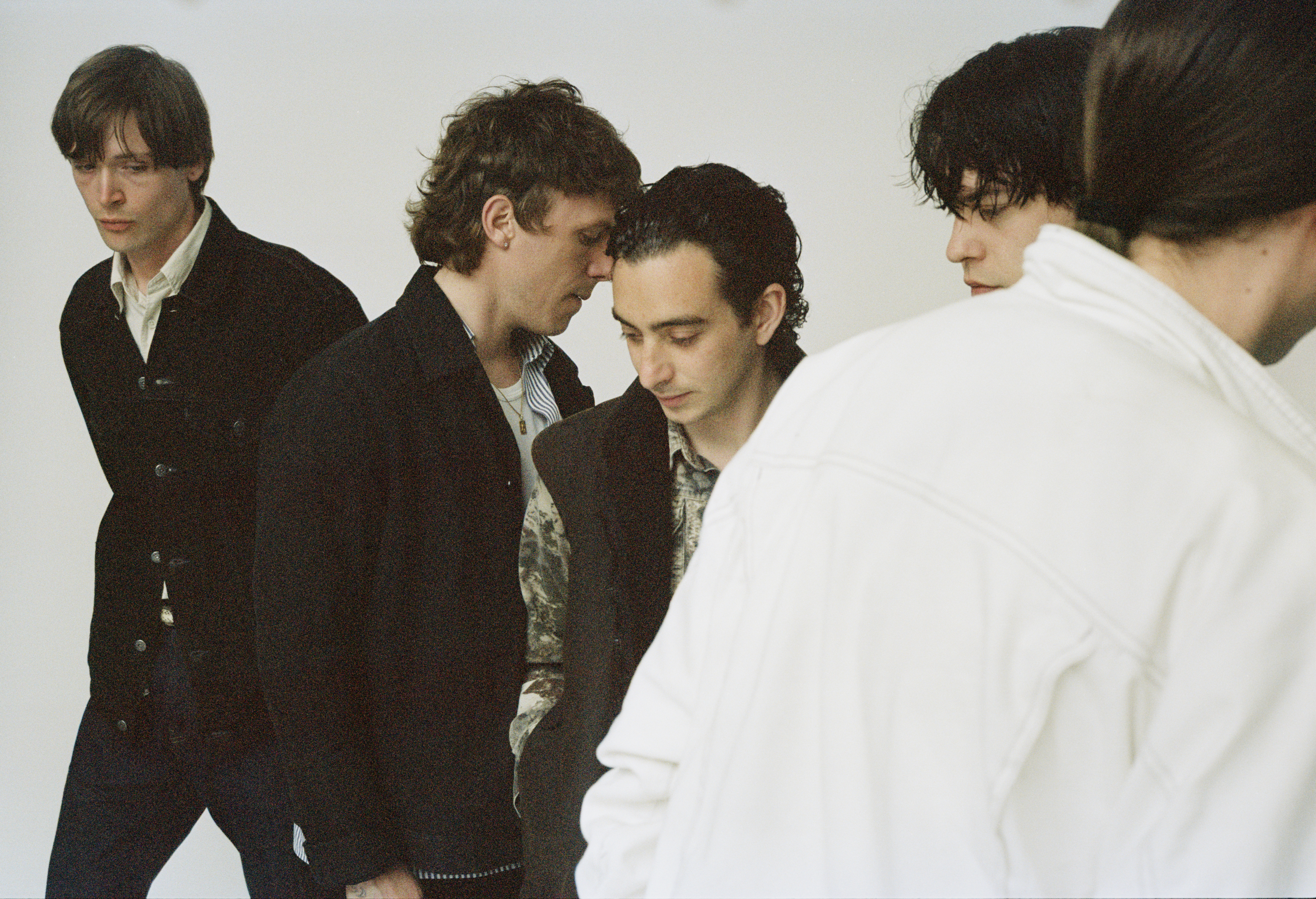

One of my favorite songs on the record is “Drink Rain." Of all the songs, that one seems to conjure up an older form of music. Is there a benefit to getting out of the first-person perspective and writing about specific characters or archetypes? And the same goes for the music, trying to embody older musical forms?
Yeah. I mean, it's definitely probably a way of pulling yourself out of your own belly button, you know? I don't lurk around at night drinking from rain puddles. So I don't think I was writing directly about myself here. That was just one of those things where you kind of sitting with a paper, and then there's this opening, and it just spills onto the paper and you look at it and then you're like 'what the fuck is this?' 'What is this narrative going on here?' I think it's the most perverted thing we've ever committed, disguised through like a Burt Bacharach— jazz sort of thing, you know? I remember we had just done the first couple of takes of that in the studio, and we were all listening back to it in the mixing room, and we were kind of grossed out by ourselves. We were like this feels like some kind of transgression, like I’m not sure this should be here. But it kind of made it all the more attractive. There’s something that is actually also truly creepy about that song and a strange veil of beauty over it. So I like that tune. But, it's a weird one.
The visuals on the release have been very strong, particularly the music videos. How much of a hand does the band take in the visual rollout of a record? Do you do see a look to an album when you're making it?
Yeah, we are involved with designing all the merchandise and all the graphic designs for the records and stuff. And then like “Vendetta," the video was an incident where like we send off all the references and had a fixed idea of what kind of elements we wanted in there and then collaborated with the director Jonas Bang to kind of realize that vision. And then another instance with the "Shelter Song" video, we kind of just asked our friend Cat Pattinama Coleman to do a video. We trusted her vision because she's an old friend that we’ve known since childhood almost. And she wanted to do a very intimate portrait of us and our friends, which was kind of daunting because historically we've been kind of guarded a bit with our personal lives. And we would probably find it more comforting doing yet another video where we were just doing a bunch of posturing, you know? But she's the only one that could do that because she knows everybody that we know. She just invited our community over for an afternoon and whatever happened, happened. And I'm really glad that that portrait exists because I think it kind of speaks to the fact that we have a community here that is very tightly bound with each other. And there's a lot of sweetness to be found there. So I thought it was brave of her to want to show that side of things. So we're involved with everything, but sometimes we trust others to do the job.
“Love Kills Slowly” seems to share that unguarded quality. Is that personal mode something that you're opening up to a little bit more?
That one definitely felt like a new place in the sense that it wasn't really packaged in, it was very simple. Like, I usually write quite voluptuous and wordy lyrics with lots of imagery in it, and this one was just trying to speak to a simple and perhaps even obvious truth. And how do you do something that is dealing with the obvious and make it your own? Make it relevant? Not to be some kind of like contrived thing, but I also think it's like if you are going through love, or heartbreak, or grief for personal joy or tragedy, you can argue that is never special because it's common. It's common for everybody. Everybody goes through all these things. Yet it means the world to the individual. So heartbreak is a thing of massive gravity, although, in the grand scheme of things, it's just common. Happens every day.
We've come out of a sort of apocalyptic year. Do you see the band taking anything from the madness that the world has just gone through, and letting it materialize in how you approach music and performing and everything going forward?
I mean, it's so hard to speak on because we're still in it. I don't think we'll understand what this did to us for a good few years. Right now, I’d rather focus on getting on the other side, rather than try and process what the hell we went through. But, I do hope that the things that we were robbed of will become something that you permanently don't take for granted anymore. Those things that seemed like natural givens will always kind of now be appreciated in another way.
I think everybody is so hungry for the life that was before. I think like many, I hope that the world and the atmosphere in the world would reward itself with some sort of explosion once things go back. I hope it's going to be a mad decade. .
Seek Shelter is out now via Mexican Summer.
